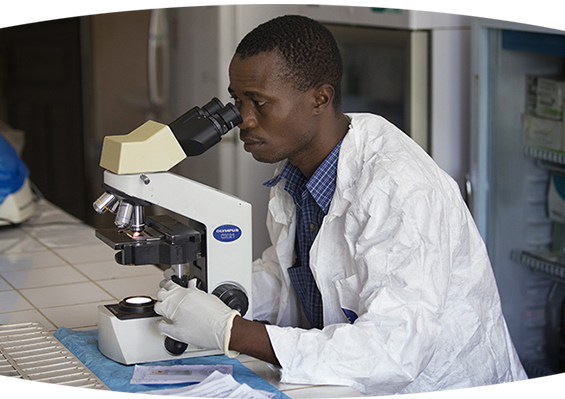Private Sector and Faith-based Partners are Fighting for Global Health
 The private sector has played a pivotal role in the fight against AIDS, TB and malaria, committing over $2.7 billion to the Global Fund since 2003. In fact, the Bill & Melinda Gates Foundation and U.S.-based companies like Coca-Cola, Chevron, and PRODUCT (RED) are among the top private organizations investing in ending the three epidemics. During the launch of the Global Fund’s 2017-2019 Replenishment cycle in September 2016, the private sector doubled its commitment, pledging an unprecedented total of $250 million.
The private sector has played a pivotal role in the fight against AIDS, TB and malaria, committing over $2.7 billion to the Global Fund since 2003. In fact, the Bill & Melinda Gates Foundation and U.S.-based companies like Coca-Cola, Chevron, and PRODUCT (RED) are among the top private organizations investing in ending the three epidemics. During the launch of the Global Fund’s 2017-2019 Replenishment cycle in September 2016, the private sector doubled its commitment, pledging an unprecedented total of $250 million.
Faith-based organizations also play a critically important role in global health, often providing health care in hard-to-reach areas in low-income countries. The United Methodist Church, in partnership with the Global Fund, pledged $8 million for 2017-2019.
Also, in February 2017, the Global Fund announced a campaign by Catholic Relief Services that aims to reduce the number of malaria cases among children by raising $5 million from Catholic individuals, youth communities and parishes.
Private Sector Expertise is Saving Lives
Beyond funding, the private sector contributes valuable programmatic expertise to enhance the Global Fund’s impact.
Coca-Cola, for example, has helped to revolutionize global health supply chain management by asking: If we can get a can of Coke to the furthest places in the world, why can’t we get lifesaving medicines there? The company contributed its distribution and supply chain expertise to pilot “Project Last Mile” in Tanzania, in partnership with the Global Fund, USAID and the Bill & Melinda Gates Foundation. By relying on experts in the supply chain, local employees were able to train their friends and neighbors to effectively and efficiently get the medicines and vaccines to populations that need them the most.
Read more about how the private sector is helping to deliver innovations and how those innovations have applications in the U.S.
